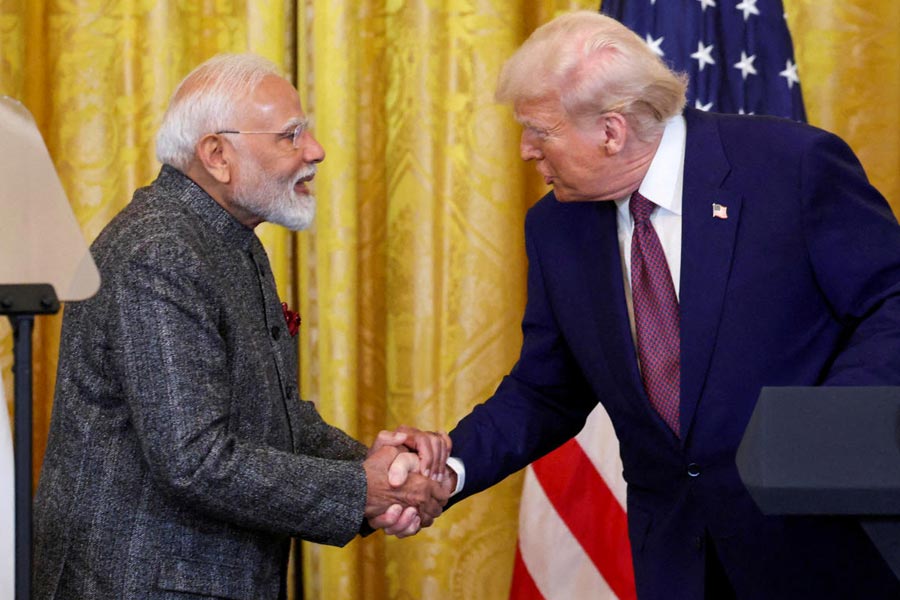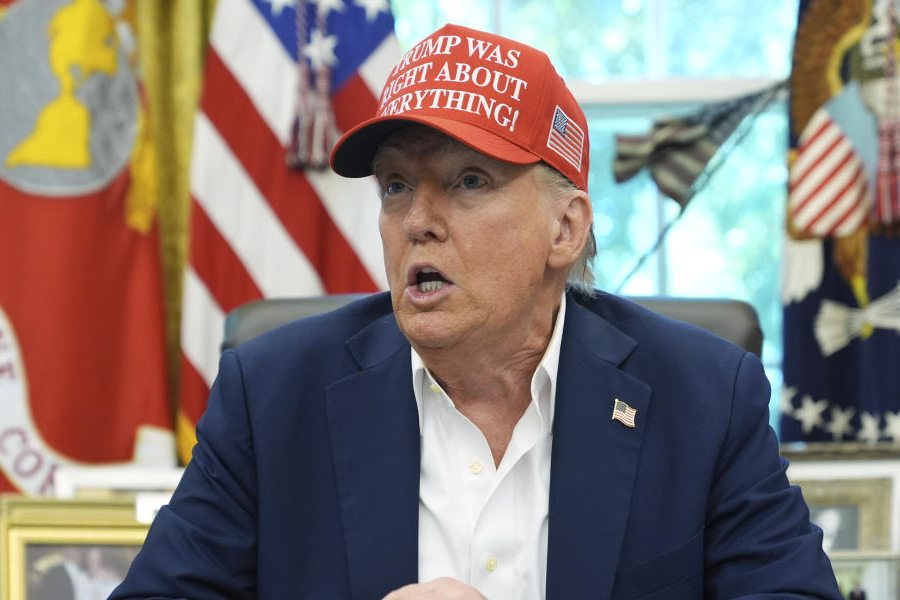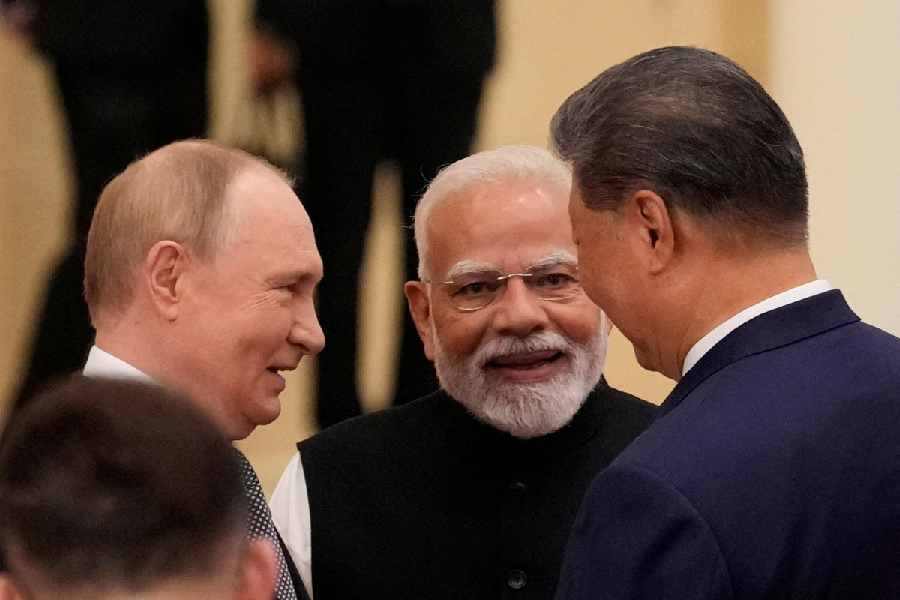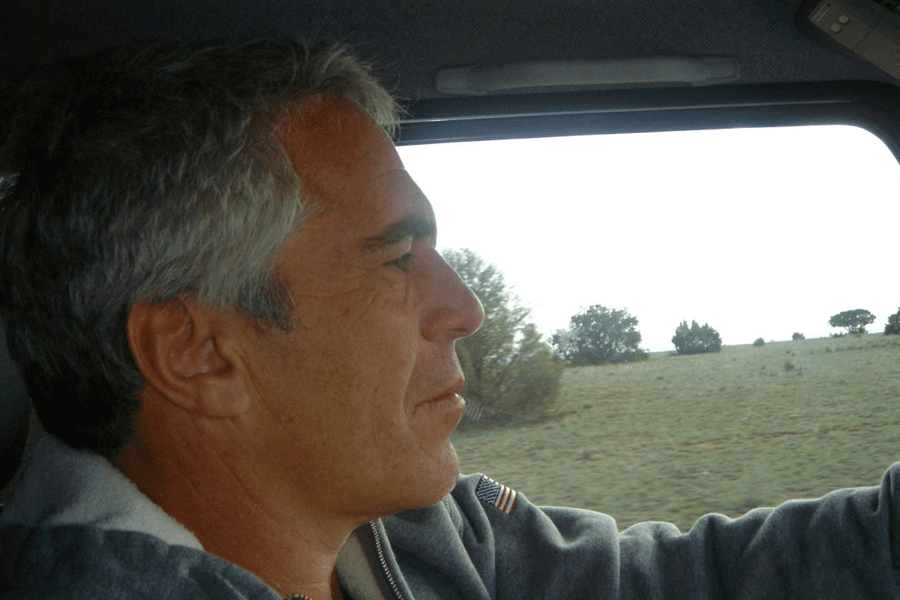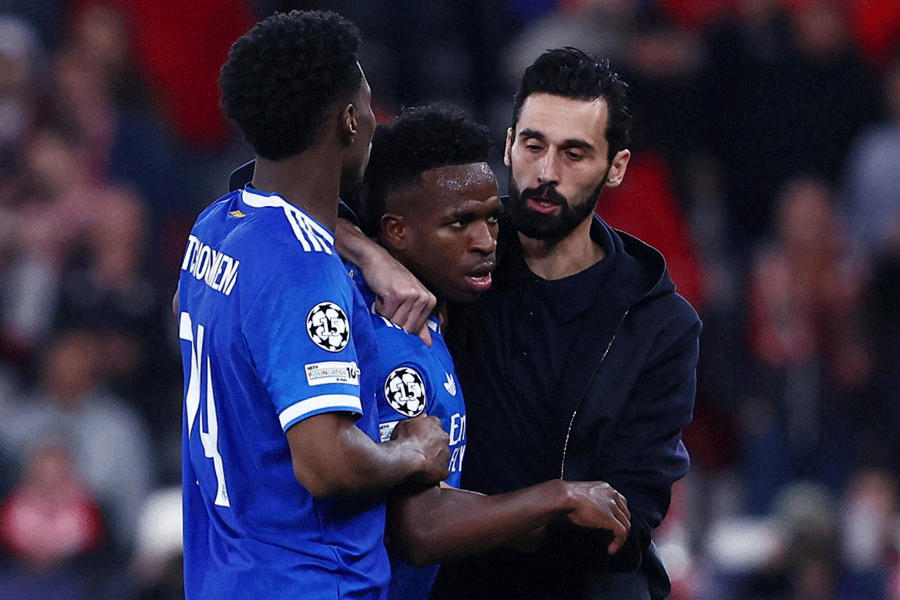Prime MInister Narendra Modi and President Donald Trump seemed to dial down the heat after a series of statements from Washington targeted India for buying Russian oil, refusing to open up its market for US goods and hobnobbing with China.
Trump, who had on Friday posted on Truth Social that it seems India was “lost to deep, dark China”, made the first move.
Trump, speaking to reporters at the Oval Office on Friday, described India and the United States as having a “special relationship” and dismissed concerns about a rupture.
“There’s nothing to worry about. We just have moments on occasion,” he said, adding with a smile that his personal bond with the prime minister remained intact.
“I'll always be friends with Modi, he’s a great prime minister. He's great. I'll always be friends, but I just don't like what he's doing at this particular moment," Trump said in response to a question.
Minutes after a video clip of that comment emerged, PM Modi quoted it on his X (Twitter) account.
Trump, however, repeated his frustration at India’s decision to continue buying energy from Moscow. “I’ve been very disappointed that India would be buying so much oil from Russia, and I let them know that. We put a very big tariff on India, 50 per cent tariff, very high tariff. I get along very well with (Prime Minister Narendra) Modi, he’s great. He was here a couple of months ago,” he said.
Days earlier, Trump had posted on his Truth Social platform that “Looks like we’ve lost India and Russia to deepest, darkest, China. May they have a long and prosperous future together! President Donald J. Trump.”
The post was accompanied by an older photo of Modi alongside Russian President Vladimir Putin and Chinese leader Xi Jinping, following their meeting at the Shanghai Cooperation Organisation summit in Tianjin.
Modi responds with conciliation
Hours after Trump’s remarks in Washington, Modi responded on social media with words of reassurance. “Deeply appreciate and fully reciprocate President Trump’s sentiments and positive assessment of our ties,” he wrote.
“India and the US have a very positive and forward-looking Comprehensive and Global Strategic Partnership.”
The timing of Modi’s post was widely read as an effort to signal that the public sparring of recent weeks would not define their relationship.
This exchange of warm words marked a contrast to comments made just a day earlier by former U.S. National Security Adviser John Bolton.
Bolton told British broadcaster LBC that Trump’s “very good personal relationship” with Modi was no longer the buffer it once was. “That’s gone now,” he said.
“I think Trump sees international relations through the prism of his personal relations with leaders. So if he has a good relationship with Vladimir Putin, the US has a good relationship with Russia. That’s obviously not the case.”
Bolton said that the administration’s tariff policy and its treatment of India had “set US-India relations back decades, pushing Modi closer to Russia and China. Beijing has cast itself as an alternative to the US and Donald Trump.”
In his view, the decision to penalise India for Russian oil purchases was an “unforced error” that undermined bipartisan U.S. efforts to steer New Delhi closer to Washington and further from its Cold War alignment with Moscow. “That has been reversed. I think it can be reversed again, but it’s a very bad moment,” he said.
Meanwhile, Trump administration’s Senior Counsellor for Trade and Manufacturing, Peter Navarro, said in a post on X that India’s highest tariffs cost US jobs.
“India buys Russian oil purely to profit/revenues feed the Russian war machine. Ukrainians/Russians die. US taxpayers shell out more. India can't handle truth/spins,” Navarro said.
National Economic Council Director Kevin Hassett has said that Trump and his trade team are disappointed that India continues to “fund” Russia's Ukraine war.
“I think that the trade team and the president are disappointed that India continues to fund Russia's Ukraine war, and hopefully it's a diplomatic issue that will have positive development soon,” Hassett told reporters in the White House Friday.
Despite such criticism, both Trump and Modi now appear intent on de-escalation.

